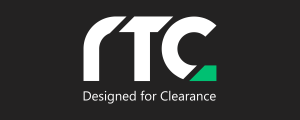- Implementation Timeline: Slovenia has proposed a draft bill for mandatory e-Invoicing and e-Reporting for both B2B and B2C transactions, set to be enforced starting June 1, 2026. This aligns with global trends towards Continuous Transaction Controls (CTC) for enhanced tax compliance and fraud reduction.
- Dual Obligations and Real-Time Reporting: Businesses will be required to issue and exchange B2B invoices electronically and report both B2B and B2C transaction data to the Financial Administration of the Republic of Slovenia (FURS) in near real-time. While invoice clearance is not mandatory, real-time data submission will be essential.
- Scope and Compliance: The mandate applies to all business entities registered in Slovenia’s Business Register (PRS), including companies, self-employed individuals, and associations with a registered office or address within Slovenia. Compliance will be necessary for all domestic B2B transactions, and transaction data must be reported electronically to FURS.
- E-Invoice Definition and Formats: An e-Invoice includes any invoice or accounting document recording business transactions, such as credit notes and payment requests. Acceptable formats include e-SLOG, the European Standard EN16931, and other globally accepted standards agreed upon by the parties involved.
- E-Invoicing Methods and Reporting Requirements: Businesses can handle e-Invoicing through e-route providers, direct exchange between information systems, or a free application provided by the tax authority for smaller businesses. All B2B and B2C transactional data must be reported to FURS within eight days using the e-SLOG standard, even for paper invoices. E-route providers must be registered, and both issuer and recipient must submit e-Invoices to FURS.
Source RTCsuite
Click on the logo to visit the website
See also
- E-Invoicing/Real Time Reporting – What can you find on VATupdate.com
- Worldwide Upcoming E-Invoicing mandates, implementations and changes – Chronological
- Collection of E-Invoicing Guides – Worldwide – VATupdate
Latest Posts in "Slovenia"
- Extended Use of the Domestic Reverse Charge for Construction‑Related Services
- Notice of VAT Period Change: Central Adjustment from 6 to 7 February 2026
- Slovenia Updates VAT and Reporting Rules for Short-Term Rental Providers and Online Platforms
- Check VAT Records and Reconciliation Status Easily on the eDavki Portal
- Slovenia Amends VAT Rules: New Exemptions, VAT Groups, and Reporting Requirements
















